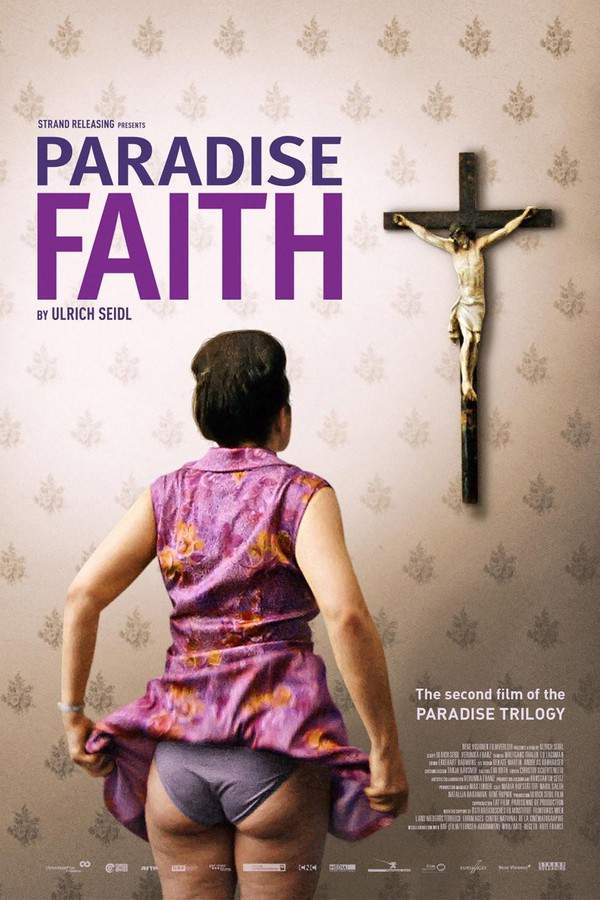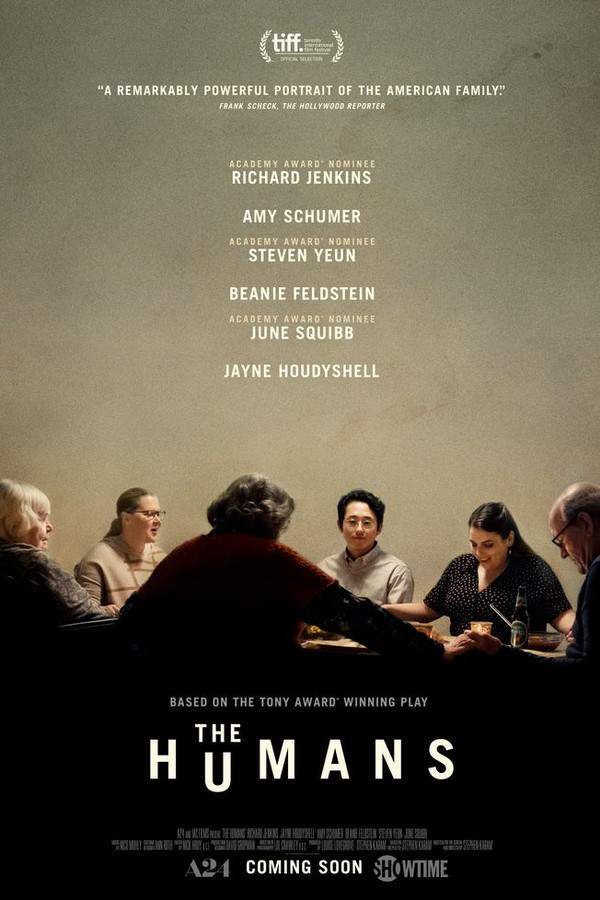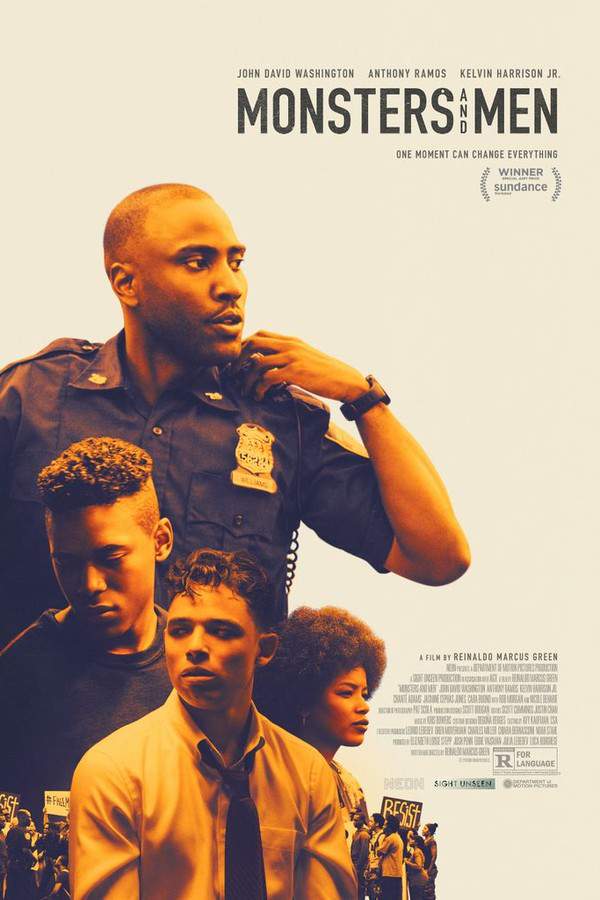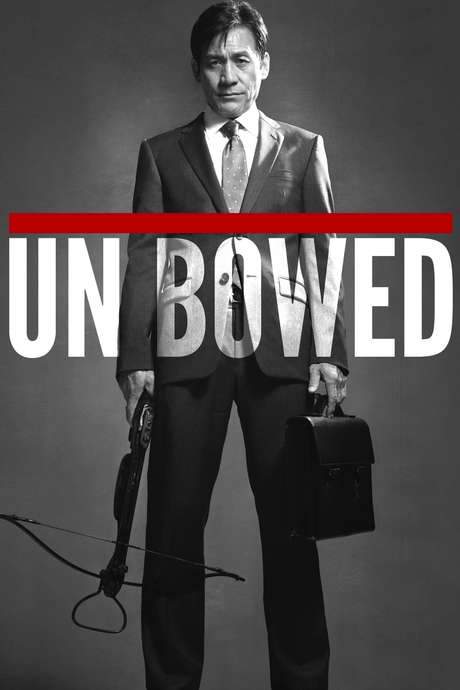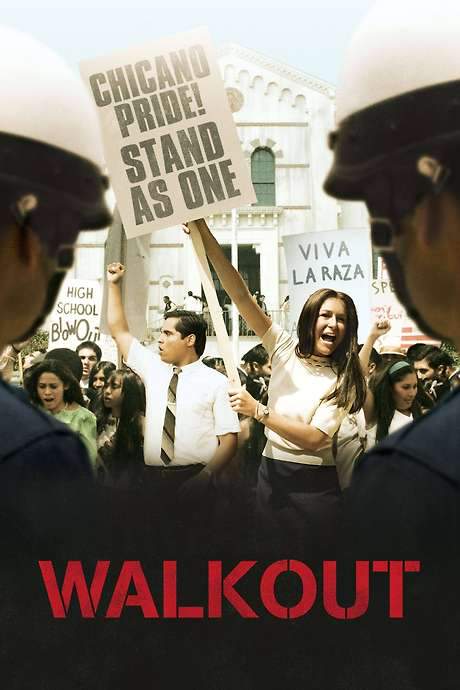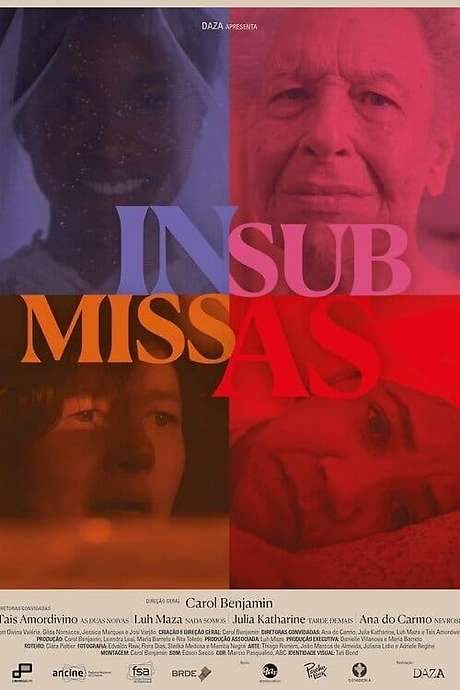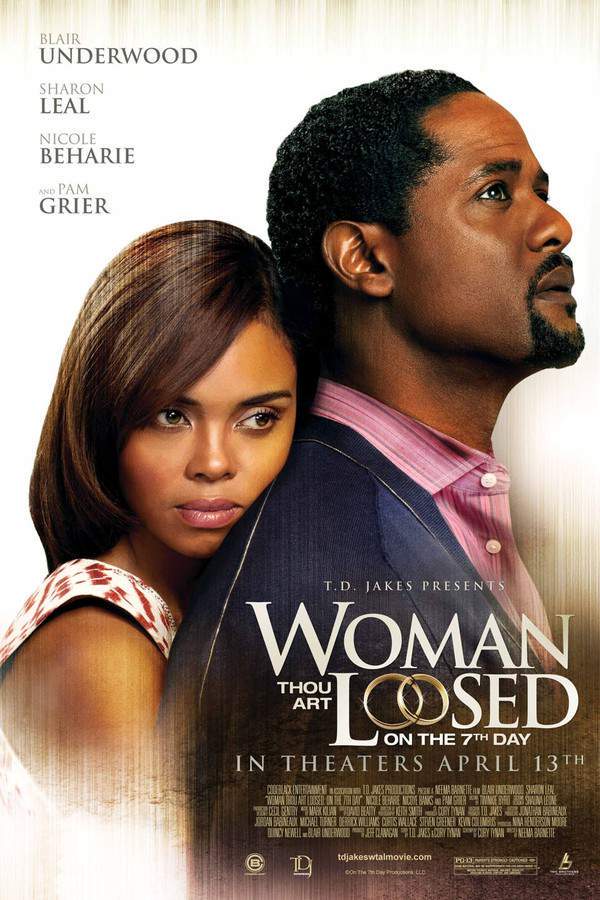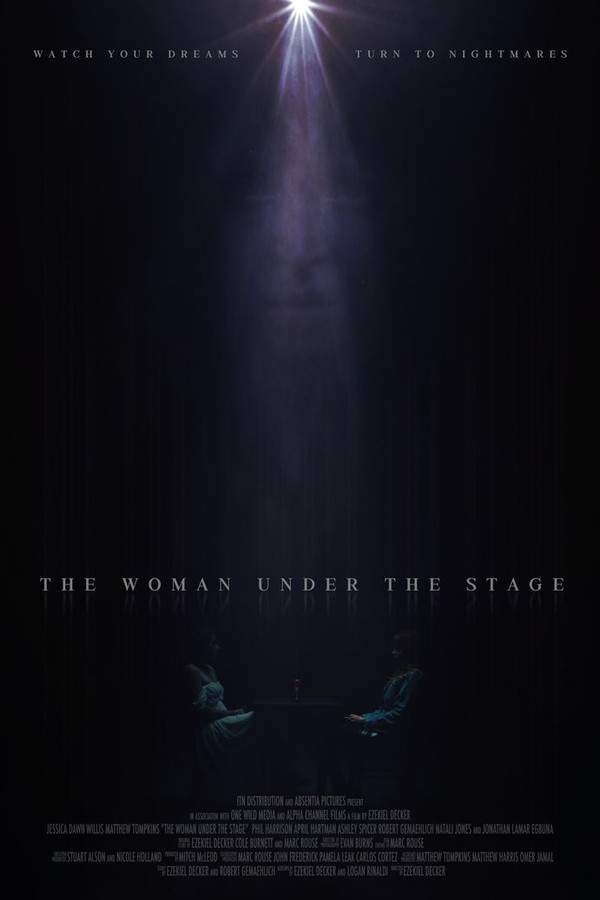
Women Talking
Following a violent act that shakes their secluded Mennonite colony, a group of women grapple with a profound question: whether to forgive, stay, or leave. Forced to confront the systemic abuse they’ve endured, they weigh the potential consequences of defying their traditions and risking everything for a chance at freedom and a self-determined future. Their discussions reveal complex emotions and difficult choices as they navigate faith, community, and the fight for autonomy.
Warning: spoilers below!
Haven’t seen Women Talking yet? This summary contains major spoilers. Bookmark the page, watch the movie, and come back for the full breakdown. If you're ready, scroll on and relive the story!
Women Talking (2022) – Full Plot Summary & Ending Explained
Read the complete plot breakdown of Women Talking (2022), including all key story events, major twists, and the ending explained in detail. Discover what really happened—and what it all means.
A young woman finds herself alone in her bed, covered in visible bruises and injuries on her hips and upper inner thighs—scarring reminders of a harrowing sexual assault. While she is told these wounds stem from either ghosts or the wild depths of her imagination, this deeply concerning narrative is a pervasive theme within the Mennonite colony, persisting for several years.
In 2010, the women and girls of this isolated community uncover a shocking truth: the men have been administering livestock tranquilizers to subdue and sexually attack them. Following this revelation, the assailants are detained and sent to a nearby city for their own safety as the women take matters into their own hands and retaliate. Most of the colony’s men leave to manage their bail, thus leaving the women to contemplate their next move over a span of two long days. They face a harsh ultimatum to either forgive their aggressors or abandon their home altogether.
In a bid to reach a consensus, they convene a plebiscite to determine their course of action: remain passive, take a stand and fight, or depart. An impasse emerges, as the votes for fighting and leaving are evenly split. Eleven women congregate in a hayloft to deliberate further; among them is Scarface Janz (played by Frances McDormand), who ultimately grows frustrated with the deliberations, choosing to depart with her hesitant daughter Anna (Kira Guloien) and resistant granddaughter Helena (Shayla Brown). With only 24 hours to make a decision, Janz warns that failing to forgive may lead to their excommunication and eventual loss of their place in heaven.
Joining the women is August (Ben Whishaw), the colony’s schoolteacher and one of the only two remaining men. He volunteers to document their discussions, as literacy is a skill unknown among these women. The second man, Melvin (August Winter), a transgender individual who has refrained from speaking after suffering an assault, tends to the children, warning the women of any external threats.
Previously known as Neitje (Liv McNeil), Melvin’s painful past includes being assaulted by her own brother and suffering a miscarriage. One of the women, Salome (portrayed by Claire Foy), recently returned from a treacherous journey to secure antibiotics for her daughter, who has been a victim of these heinous acts. She is determined to stay and fight, a sentiment shared by Mejal (Michelle McLeod). The arduous trip to the nearest mobile clinic required Salome to travel for a day and a half with her daughter on her back.
Ona (played by Rooney Mara), pregnant from a brutal assault, also advocates for resistance, envisioning a future where women can redefine the rules of the colony to ensure equality, including education for girls and exposure to the outside world. Mariche (portrayed by Jessie Buckley), however, argues that forgiveness should be prioritized. Ona asserts that the oppression of women is a direct result of the men’s actions; she adds a moment of levity to the tense atmosphere with a suggestion that perhaps the men could be expelled entirely, a thought that draws a collective laugh from the group.
To navigate their increasingly complex discussion, Ona proposes that August compile two distinct documents outlining the pros and cons of both leaving and staying. Staying would mean retaining familiarity while leaving entails leaving behind everything they know.
As the 2010 census unfolds, they learn Klaas (Eli Ham), Mariche’s abusive husband, will return that evening for further bail money. Tensions rise again, and some women flip their stances, now favoring departure for the promise of safety and new experiences—though parting calls for abandoning their brothers and sons. Debate ensues regarding whether the men should be permitted to follow, entailing the risk of being overwhelmed as they often rely heavily on the women.
Salome is vehement in her desire for vengeance, expressing that she would opt for lethality over leaving her daughter vulnerable once more. Yet, she is reminded of their core beliefs by Agata (Judith Ivey), revealing the struggle between their principles and their emotions. Meanwhile, Greta (Sheila McCarthy) frames leaving as a necessary step toward achieving forgiveness, further persuading the group.
Ultimately, it is Mariche who stands alone in opposition. The discussions reveal her trauma-induced forgiveness of her husband, spurred by Greta’s encouragement. After an apology from Greta, Mariche aligns with the others’ decision to leave.
The group’s written reasons for departing—safeguarding their children, adhering firmly to their faith, and embracing freedom of thought—are meticulously documented by August. They finalize plans to take some boys aged 15 and younger along, making exceptions for those above twelve, as worries linger about their potential for harm.
As dawn breaks, they quietly prepare to vanish without a trace from Klaas’s watchful eye. August instructs Ona on map reading as her anxiety for their future escalates. Unfortunately, Mariche’s homecoming results in a brutal confrontation with Klaas, ending in her sustaining severe injuries.
Before their departure, August takes the brave step of publicly declaring both his affection for Ona and his desire to aid the women through the creation of a map. However, unforeseen complications arise when Melvin informs Salome that her teenage son Aaron (Nathaniel McParland) is missing. Although he is located, he refuses to join them, prompting Salome to resort to tranquilization to enforce compliance. She confides this decision solely to August, who understands without judgment. As they stealthily leave the colony behind, Helena and Anna join the caravan while Scarface Janz and August watch on with a mix of emotions as the women begin their new journey toward an uncertain yet hopeful future.
Last Updated: November 16, 2024 at 11:46
Ending Explained – What Happens at the End of Women Talking?
Still wondering what the ending of Women Talking (2022) really means? Here’s a spoiler-heavy breakdown of the final scene, major twists, and the deeper themes that shape the film’s conclusion.
In the end, the women in the colony choose to leave, making a courageous decision to escape from the cycle of violence and oppression they have endured. After much intense debate—viewed as a kind of collective moral dilemma—they realize that forgiving the men would mean accepting their continued power over them, and fighting could lead to bloodshed and further harm. Ultimately, driven by a desire for safety and dignity, they decide that leaving the colony is the best course of action. This decision is made despite fears about spiritual rejection; some believe they might be denied entry to Heaven if they abandon their faith. However, their choice to escape symbolizes a reclaiming of their agency, independence, and the hope for a better, more equal future where women are not victims but active participants in shaping their lives. As they prepare to leave, the women leave behind their past traumas and step into the uncertain but free world awaiting beyond the colony. Ona, pregnant with the child of one of the rapists, chooses to give birth away from the colony in a safer place, embodying her resilience and hope. Meanwhile, August, the young teacher, witnesses this moment with a mixture of pride and sadness, understanding that this act of defiance and survival may inspire change, yet also recognizing the heavy cost of their decision. The ending underscores the strength of these women’s collective voice and their enduring courage to seek dignity in the face of unimaginable brutality. Their choice to leave is both a literal and symbolic rejection of the cycle of violence, and it signals a new beginning based on hope, freedom, and the possibility of a future built on equality and respect.
Last Updated: June 25, 2025 at 08:44
Explore Movie Threads
Discover curated groups of movies connected by mood, themes, and story style. Browse collections built around emotion, atmosphere, and narrative focus to easily find films that match what you feel like watching right now.
Movies with intense debates in one location like Women Talking
Intense philosophical debates unfold under pressure in a single, confined space.If you liked the claustrophobic, dialogue-driven tension of Women Talking, explore these movies where groups are confined to a single space, facing a deadline to make a critical decision. These films share a similar mood of urgent, high-stakes deliberation.
Narrative Summary
The narrative is driven almost entirely by dialogue, with characters grappling with a complex moral or existential dilemma. A deadline or external threat creates urgency, forcing the group to reach a consensus or face dire consequences, all within the bounds of a single location that heightens the sense of entrapment.
Why These Movies?
These films are grouped together because they share a unique narrative structure and emotional tone. The experience is defined by intellectual and emotional urgency, a slow-burn pacing focused on dialogue, and a powerful sense of claustrophobia that makes every word count.
Stories of collective resilience like Women Talking
Stories of marginalized communities finding strength and forging a path to freedom together.For viewers who appreciated the powerful theme of collective action in Women Talking, this thread gathers movies about marginalized groups banding together to fight systemic oppression. These stories share a heavy emotional weight and a focus on community, solidarity, and the difficult road to liberation.
Narrative Summary
The story follows a community, often secluded or isolated, as they awaken to the injustices of their situation. The plot revolves around their internal debates and the forging of a collective will to resist. The journey is emotionally heavy, focusing on the psychological trauma of oppression and the cathartic, yet perilous, process of rebellion.
Why These Movies?
These movies are united by their central theme of community-led resistance, a heavy emotional weight derived from systemic trauma, and a tone that balances the bleakness of oppression with the cathartic hope of collective empowerment. They explore similar dynamics of group psychology and moral courage.
Unlock the Full Story of Women Talking
Don't stop at just watching — explore Women Talking in full detail. From the complete plot summary and scene-by-scene timeline to character breakdowns, thematic analysis, and a deep dive into the ending — every page helps you truly understand what Women Talking is all about. Plus, discover what's next after the movie.
Women Talking Timeline
Track the full timeline of Women Talking with every major event arranged chronologically. Perfect for decoding non-linear storytelling, flashbacks, or parallel narratives with a clear scene-by-scene breakdown.

Characters, Settings & Themes in Women Talking
Discover the characters, locations, and core themes that shape Women Talking. Get insights into symbolic elements, setting significance, and deeper narrative meaning — ideal for thematic analysis and movie breakdowns.

Women Talking Ending Explained
What really happened at the end of Women Talking? This detailed ending explained page breaks down final scenes, hidden clues, and alternate interpretations with expert analysis and viewer theories.

Women Talking Spoiler-Free Summary
Get a quick, spoiler-free overview of Women Talking that covers the main plot points and key details without revealing any major twists or spoilers. Perfect for those who want to know what to expect before diving in.

More About Women Talking
Visit What's After the Movie to explore more about Women Talking: box office results, cast and crew info, production details, post-credit scenes, and external links — all in one place for movie fans and researchers.

Similar Movies to Women Talking
Discover movies like Women Talking that share similar genres, themes, and storytelling elements. Whether you’re drawn to the atmosphere, character arcs, or plot structure, these curated recommendations will help you explore more films you’ll love.
Explore More About Movie Women Talking
Women Talking (2022) Scene-by-Scene Movie Timeline
Women Talking (2022) Movie Characters, Themes & Settings
Women Talking (2022) Ending Explained & Theories
Women Talking (2022) Spoiler-Free Summary & Key Flow
Movies Like Women Talking – Similar Titles You’ll Enjoy
The Woman Who Left (2017) Spoiler-Packed Plot Recap
Certain Women (2016) Detailed Story Recap
Woman Thou Art Loosed (2004) Detailed Story Recap
The Women (2008) Complete Plot Breakdown
The Woman (2011) Spoiler-Packed Plot Recap
Forgiveness (2006) Movie Recap & Themes
Woman (2019) Detailed Story Recap
What Is a Woman? (2020) Movie Recap & Themes
What She Said (2021) Story Summary & Characters
Women Do Cry (2021) Full Movie Breakdown
The Wildflower (2022) Full Summary & Key Details
Women on the Edge (2023) Detailed Story Recap
Women’s Prison (1955) Complete Plot Breakdown
If These Walls Could Talk (1996) Detailed Story Recap
Women from Rote Island (2023) Ending Explained & Film Insights


